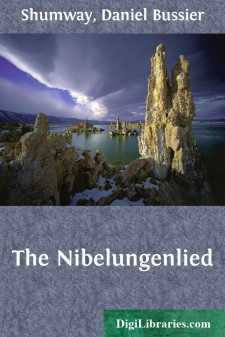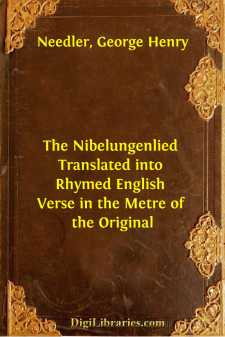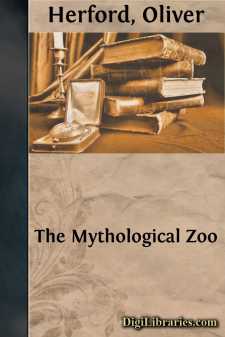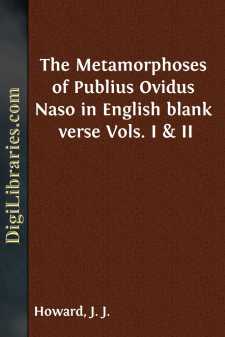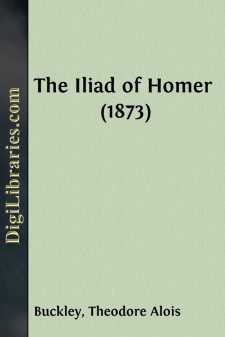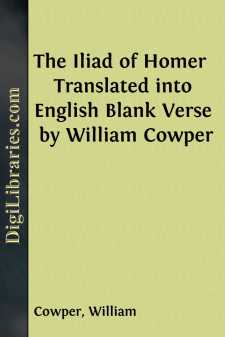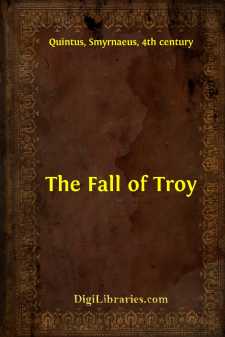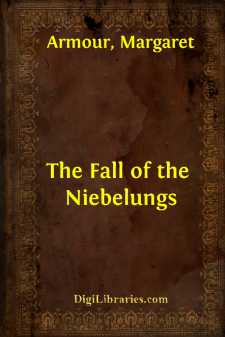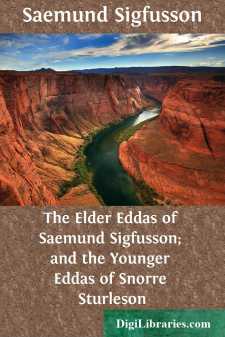Poetry
- American 96
- Ancient, Classical & Medieval
- Asian 15
- Australian & Oceanian 11
- Canadian 11
- Caribbean & Latin American 5
- Children's Poetry & Nursery rhymes 51
- Continental European 11
- English, Irish, Scottish, Welsh 162
- General 483
- Inspirational & Religious 7
- Middle Eastern 3
Ancient, Classical & Medieval Books
Sort by:
THE NIBELUNGENLIED (1) ADVENTURE I (2) Full many a wonder is told us in stories old, of heroes worthy of praise, of hardships dire, of joy and feasting, of the fighting of bold warriors, of weeping and of wailing; now ye may hear wonders told. In Burgundy there grew so noble a maid that in all the lands none fairer might there be. Kriemhild (3) was she called; a comely woman she became, for whose sake...
more...
1. Origin of the Saga All the Aryan peoples have had their heroic age, the achievements of which form the basis of later saga. For the Germans this was the period of the Migrations, as it is called, in round numbers the two hundred years from 400 to 600, at the close of which we find them settled in those regions which they have, generally speaking, occupied ever since. During these two centuries...
more...
by:
Oliver Herford
Medusa How did Medusa do her hair?The question fills me with despair.It must have caused her sore distressThat head of curling snakes to dress.Whenever after endless toilShe coaxed it finally to coil,The music of a Passing BandWould cause each separate hair to standOn end and sway and writhe and spit,—She couldn't "do a thing with it."And, being woman and awareOf such disaster to her...
more...
by:
J. J. Howard
THEFirst BookOF THEMETAMORPHOSESOFOVID. From bodies various form'd, mutative shapesMy Muse would sing:—Celestial powers give aid!From you those changes sprung,—inspire my pen;Connect each period of my venturous songUnsever'd, from old Chaös' rude misrule,Till now the world beneath Augustus smiles. While yet nor earth nor sea their place possest,Nor that cerulean...
more...
ARGUMENT. Apollo, enraged at the insult offered to his priest, Chryses, sends a pestilence upon the Greeks. A council is called, and Agamemnon, being compelled to restore the daughter of Chryses, whom he had taken from him, in revenge deprives Achilles of Hippodameia. Achilles resigns her, but refuses to aid the Greeks in battle, and at his request, his mother, Thetis, petitions Jove to honour her...
more...
by:
William Cowper
BOOK I. Achilles sing, O Goddess! Peleus' son;His wrath pernicious, who ten thousand woesCaused to Achaia's host, sent many a soulIllustrious into Ades premature,And Heroes gave (so stood the will of Jove)5To dogs and to all ravening fowls a prey,When fierce dispute had separated onceThe noble Chief Achilles from the sonOf Atreus, Agamemnon, King of men. Who them to strife impell'd? What...
more...
PART I THE TREASON OF GANELON SARAGOSSA. THE COUNCIL OF KING MARSIL IThe king our Emperor Carlemaine,Hath been for seven full years in Spain.From highland to sea hath he won the land;City was none might his arm withstand;Keep and castle alike went down--Save Saragossa, the mountain town.The King Marsilius holds the place,Who loveth not God, nor seeks His grace:He prays to Apollin, and serves...
more...
Homer's "Iliad" begins towards the close of the last of the ten years of the Trojan War: its incidents extend over some fifty days only, and it ends with the burial of Hector. The things which came before and after were told by other bards, who between them narrated the whole "cycle" of the events of the war, and so were called the Cyclic Poets. Of their works none have survived;...
more...
by:
Margaret Armour
In old tales they tell us many wonders of heroes and of high courage, of glad feasting, of wine and of mourning; and herein ye shall read of the marvellous deeds and of the strife of brave men. There grew up in Burgundy a noble maiden, in no land was a fairer. Kriemhild was her name. Well favoured was the damsel, and by reason of her died many warriors. Doughty knights in plenty wooed her, as was meet,...
more...
PREFACE. Sæmund, son of Sigfus, the reputed collector of the poems bearing his name, which is sometimes also called the Elder, and the Poetic, Edda, was of a highly distinguished family, being descended in a direct line from King Harald Hildetonn. He was born at Oddi, his paternal dwelling in the south of Iceland, between the years 1054 and 1057, or about 50 years after the establishment by law of the...
more...


